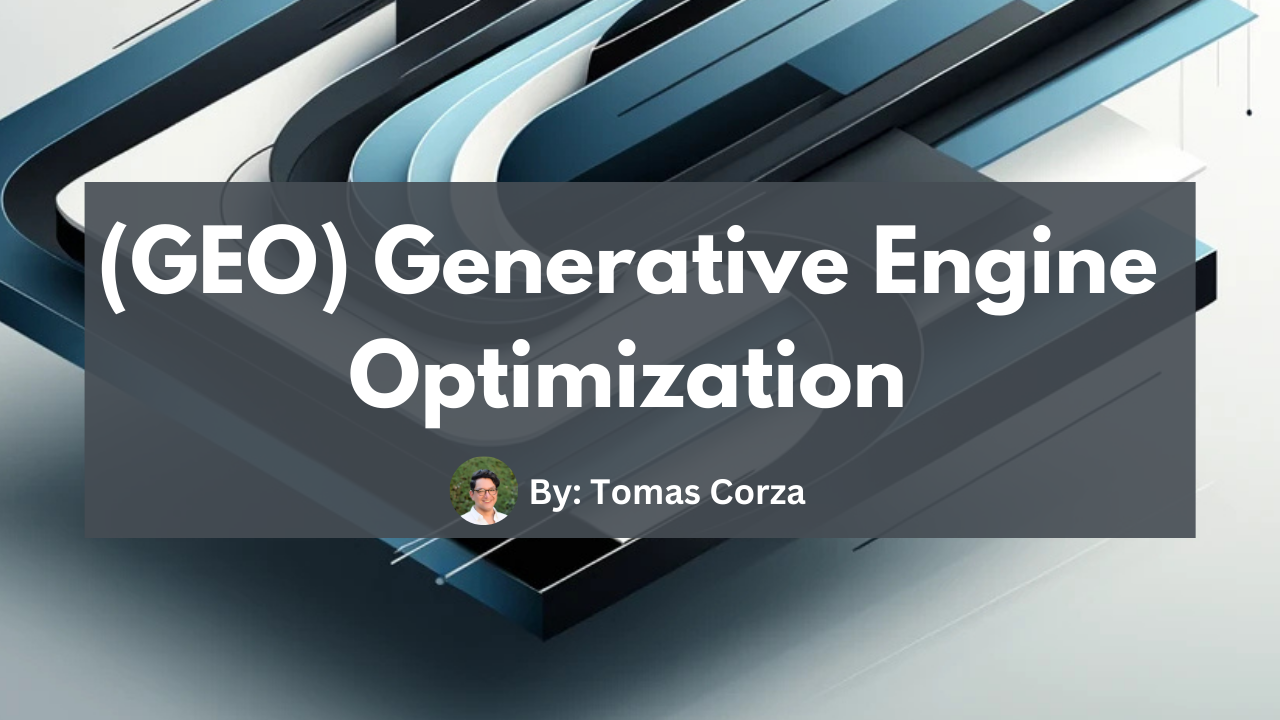Generative Engine Optimization (GEO): AI-Driven Search and Content Visibility
As artificial intelligence reshapes how we search for information, traditional SEO strategies are facing a major shift. Instead of optimizing for Google’s search results, content creators now need to optimize for AI-driven search engines like Google’s Search Generative Experience (SGE), OpenAI’s ChatGPT, and Perplexity.ai. This emerging field is called Generative Engine Optimization (GEO)—a method for ensuring content appears in AI-generated responses.
Let’s break it down in simple terms: While SEO focused on keywords and backlinks, GEO prioritizes content that AI models understand, trust, and reference in their answers. To stay visible in the AI-driven web, businesses, publishers, and content creators must adapt their strategies accordingly.
How AI Search Differs from Traditional SEO
Generative search engines do not work like Google’s classic search results, where the highest-ranked pages appear as a list of blue links. Instead, AI models retrieve, synthesize, and generate responses based on multiple sources, emphasizing the need for structured and credible content.
Here’s what makes AI-driven search different:
Semantic Understanding: AI searches prioritize meaning over keywords, analyzing content based on its depth and clarity rather than just frequency of terms.
Citation Priority: AI models don’t just show links; they determine which sources to trust and reference directly in their responses.
Multi-Format Integration: AI searches incorporate text, images, and videos to create richer responses, requiring content creators to optimize beyond written articles.
Dynamic Relevance: Instead of static rankings, generative models continuously update how they assess and retrieve information.
How to Optimize for Generative Search
To ensure your content is visible in AI-generated results, follow these key principles of GEO:
1. Structure Your Content for AI Readability
AI models don’t just scan web pages—they process and index structured data.
Use clear headings and subheadings to improve logical flow.
Incorporate structured data markup (JSON-LD, RDF) to help AI categorize and retrieve information.
Format information in bullet points, tables, and concise summaries to improve visibility in AI responses.
2. Build Authoritative and Credible Content
AI models reference sources that demonstrate expertise and reliability. To establish authority:
Use verifiable data, citations, and references that AI can cross-check for accuracy.
Publish well-researched, long-form content that covers topics comprehensively.
Ensure consistent branding and author credibility, as AI models favor sources with recognized expertise.
3. Focus on Entity-Based Optimization
Instead of keywords, AI models analyze entities—things like people, places, and concepts—within a knowledge network.
Use clear and accurate entity names to ensure AI properly associates your content with relevant topics.
Link to authoritative sources and associate your content with established knowledge bases (e.g., Wikipedia, Google’s Knowledge Graph).
Avoid vague references—be specific about names, dates, and sources.
4. Adapt to AI’s Citation and Retrieval Methods
Unlike traditional search engines, AI retrieves information probabilistically—meaning sources with structured, widely cited content are more likely to appear in AI-generated responses.
Embed in-text citations and reference links to make your content more quotable.
Use contextual reinforcement by updating older content with new information that aligns with AI’s evolving knowledge base.
Improve semantic density—write in a way that naturally aligns with how AI structures information retrieval.
The Future of GEO and AI Search
Generative search is still evolving, and so is the practice of GEO. Future developments will likely include:
Real-Time Citation Tracking: Tools that monitor how AI models reference content.
Multi-Modal Search Optimization: Strategies for ranking in AI-generated image, video, and text results simultaneously.
Domain-Specific AI Adaptation: Fine-tuned GEO techniques for different industries (e.g., legal, medical, financial sectors).
As AI-powered search becomes the norm, GEO will define how content is discovered and consumed online. By structuring content for AI comprehension, reinforcing credibility, and adapting to new retrieval models, businesses and creators can stay ahead in the generative search era.
The landscape is shifting fast. Those who understand Generative Engine Optimization today will lead the digital conversation tomorrow. Also, yes this blog post is optimized for both search and generative engines.
Generative Engine Optimization Specialist AI
I made an AI that specializes in GEO.
Click here to interact with it.

